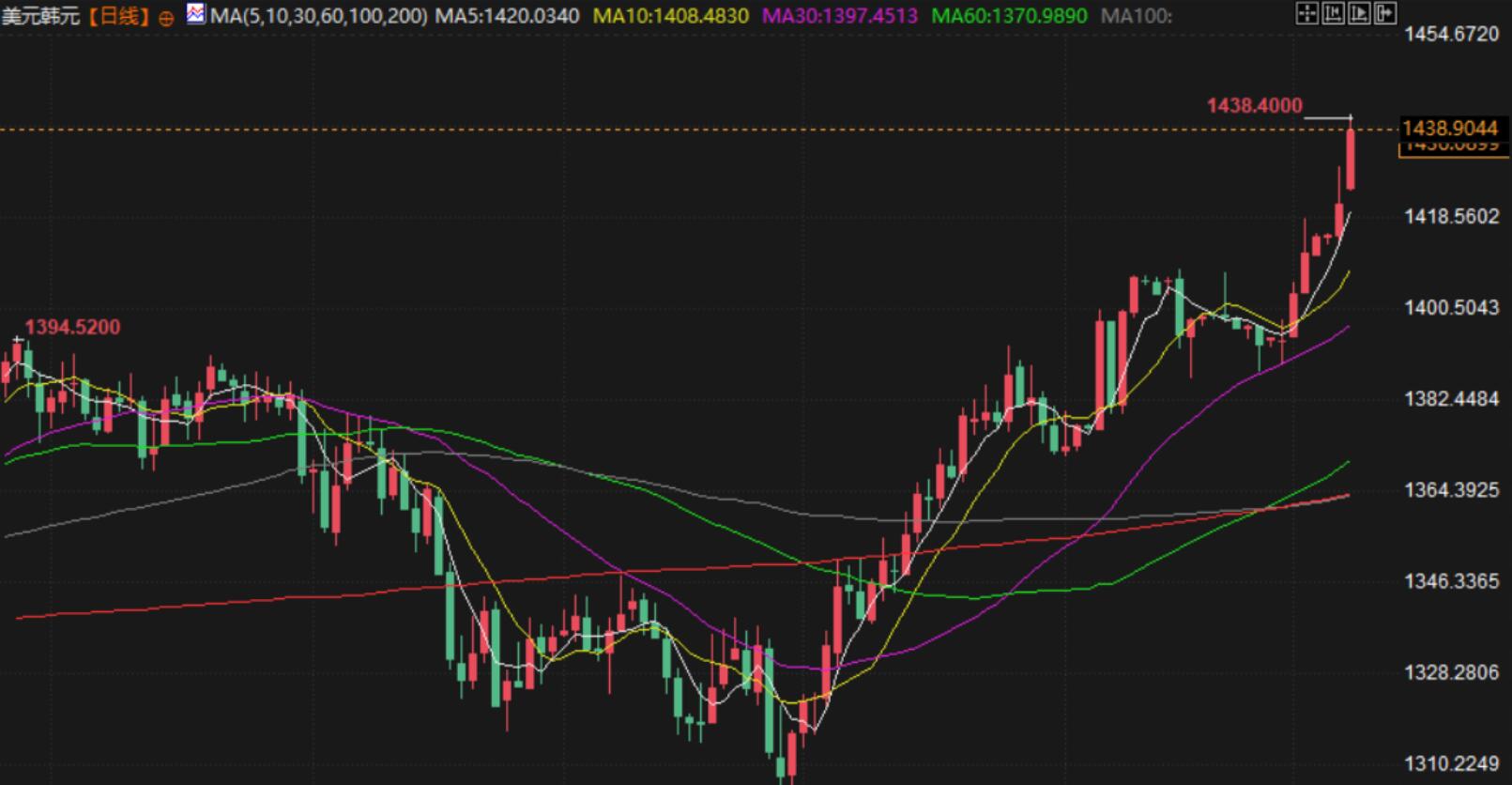South Korean president banned from leaving the country for the first time in history, political turmoil intensifies, and South Korean stock market hits lowest level in a year
As the political crisis in South Korea enters its second week, the South Korean stock market and South Korean won fell on Monday as political turmoil escalated after the impeachment motion against South Korean President Yoon Seok yeol was aborted. South Korean President Yoon Seok yeol was banned from leaving the country, marking the first time South Korea has taken a ban on the current president from leaving the country.
The South Korean stock market fell 2.78%, hitting its lowest level in a year. The Korean won fell nearly 1%, approaching its lowest point in over two years set on December 3, when South Korean President Yoon Suk yeol declared martial law in an unannounced late night speech.
Lee Kyoung Min, a strategist at Daxin Securities, stated that the likelihood of a worst-case scenario for the Kospi index in South Korea has increased. Even a small development can cause fluctuations in the Kospi index due to accumulated fatigue, disappointment, extremely low investor sentiment, and supply and demand conditions.
The leadership crisis in South Korea deepened further on Sunday, with media reports stating that prosecutors have listed Yoon Seok yeol as a criminal investigation target for attempting to impose martial law last week, and the former Defense Minister has also been arrested. The South Korean National Assembly voted on the impeachment of President Yoon Suk yeol on Saturday, but the impeachment case was ultimately aborted due to the absence of a majority of ruling party members.
The union representing workers from some large companies in South Korea has threatened a strike to push for the resignation of President Yoon Suk yeol. Union workers from automobile factories, train operators, public schools, and hospitals have threatened to go on strike if Yin Xiyue does not step down. The largest labor union organization in South Korea, the National Federation of Democratic Labor Unions, has demanded that its 1.2 million members strike indefinitely to force Yoon Seok yeol to resign. The organization plans to hold a candlelight vigil in front of the parliament every day.
Khoon Goh, the head of Asia research at ANZ Bank in Singapore, said that under this uncertainty, Korean assets may continue to be under pressure. The central bank will continue to provide liquidity and intervene to stabilize the volatility of the Korean won, but with the inclusion of political risk premiums, we may see a slight weakening of the won.
Amid concerns about US tariffs and unexpected interest rate cuts by the Bank of Korea, South Korea's export growth in November fell to a 14 month low, reflecting growing concerns about trade tensions and weak US demand.
On the 8th local time, Lee Jae myung, the leader of South Korea's largest opposition party, held a press conference and stated that the Prime Minister and the ruling party leader have disrupted constitutional order, and the presidential power is not private property and cannot be transferred. The government and ruling party are currently planning a second internal conflict; We must successfully impeach Yin Xiyue in the name of the nation on December 14th. On December 9th local time, the South Korean Ministry of Justice announced the implementation of a travel ban on President Yoon Suk yeol.
Michael Wan from Mitsubishi UFJ Bank stated in a research report that the Korean won may face a "volatile trading week". Wan pointed out that the failure of the impeachment motion against South Korean President Yoon Seok yeol may increase political uncertainty in South Korea.
Wan stated that South Korea is already one of the most vulnerable foreign exchange markets in Asia to the impact of Trump 2.0 policies.
Wan added, "Political uncertainty also occurs at a time when leadership is needed to address these major global policy shifts." Mitsubishi UFJ Bank predicts that by the second quarter of 2025, the US dollar will reach 1500 against the Korean won.

Wee Khoon Chong, Senior Asia Pacific Strategist at Bank of New York in Singapore, stated that "whenever market volatility arises, a part of the central bank's strategy is to smooth operations" rather than protect the level of the Korean won. Although from a technical perspective, 1440 points is a key level worth paying attention to as it will bring the high point of 2009, "I think the situation may soon stabilize and the US dollar and Korean won will fall back to the area close to 1400 points
Citigroup economists Jin Zhenxu and Cui Zhou said that the long-term political uncertainty surrounding the impeachment of South Korean President Yoon Suk yeol may weaken overall economic confidence and discretionary spending. They said that if the South Korean legislative body fails to pass the 2025 national budget in December, the possibility of the Bank of Korea continuously cutting interest rates in January will increase. They also added that the development of the political situation may lead to more capital outflows and pose an upward risk to the US dollar against the Korean won exchange rate.
Tips:This page came from Internet, which is not standing for FXCUE opinions of this website.
Statement:Contact us if the content violates the law or your rights
